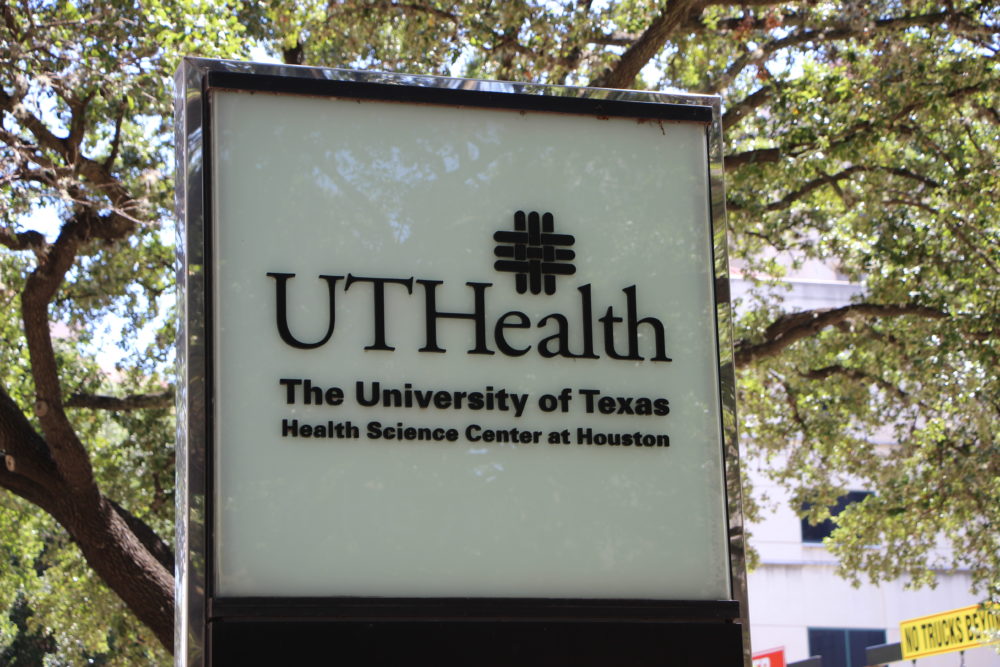
Dona Kim Murphey, 41, has always been an incredibly high-functioning person. She’s a neurologist, a community organizer and a mother who lives in Pearland. But for the past few months, the lasting effects of COVID-19 have been slowing her down.
"If I go outside and spend more than 60 to 90 minutes doing anything, I really pay for it in terms of how exhausted I get," Murphey said.
When Murphey was infected with COVID-19 in March, she experienced all the traditional symptoms: nausea, shortness of breath, mild chest pain. But after recovering from the initial infection, she struggled with multitasking the same way she did before her sickness.
In late July, things began to get worse. On and off, she would experience forgetfulness, fatigue and depression. In some moments, she said those symptoms have made her question her self worth.
"I’m typically a very energetic and optimistic person," Murphey said. "But in this period, I got super depressed very suddenly. I was kind of passively suicidal — like not really wanting to be here anymore. That’s very uncharacteristic for me."
She also experienced mild alien hand syndrome. In severe cases, it can feel like a separate entity, like an alien, is controlling the hand.
"I was texting and all the sudden, I was really captivated by my hand — it was very bizarre," said Murphey. "I was wondering why it was oriented the way it was in space."
Although nothing showed up on an MRI, Murphey believes she experienced a small stroke that wouldn't show up on the imaging.
Murphey is a COVID-19 “long-hauler," or an individual dealing with symptoms more than three months after being infected. Patients experience respiratory symptoms like coughing and shortness of breath, often the result of lung damage. A growing body of research is showing these long-term symptoms also include neurological, cognitive and psychiatric effects.
The post-COVID-19 clinic at UTHealth, which opened in September, studies and treats these kinds of long-term symptoms. Dr. H. Alex Choi, a critical care neurologist at the clinic, said it has been difficult for some patients to return to their normal lives. Many haven’t been able to return to work.
The clinic followed up with 50 patients in the Houston area, three months after hospitalization. The early study showed 70% of patients still had neurological symptoms. Forty-two percent reported fatigue and 29% had PTSD. These symptoms troubled both severe and mild COVID-19 patients.
"I actually think people who have mild symptoms can still have prolonged neurocognitive symptoms that can last for at least three months," Choi said. "We’re also seeing it six months later and potentially up to a year or two.”
There's research showing the psychological impacts of hospital stays in the intensive care unit. But mild hospitalization doesn't typically cause PTSD, Choi said.
"COVID is a very different type of phenomenon," Choi said. "(Patients) are in rooms by themselves and often they’re not allowed to have visitors. So they're in almost social isolation in a hospital bed, wondering what’s going to happen."
Cognitive symptoms, like brain fog and fatigue, have also followed patients after leaving the hospital. Some doctors believe it may be due to inflammation in the brain caused by an overreaction of the immune system. That response is meant to combat the virus itself, but may start attacking the body itself, causing inflammation in the lungs or the brain, Choi said.
UTHealth is recruiting patients in the Houston area for a clinical trial on a potential treatment preventing long-term symptoms.
"We’re hypothesizing that when we decrease the amount of over-inflammation, that we’re going to be able to decrease some of the brain injury that can happen after COVID-19," Choi said.
Researchers are also considering another theory. Dr. Zulfi Haneef, a neurologist at Baylor College of Medicine, hypothesizes that brain damage could be a result of the virus entering through the nose and proceeding into the front part of the brain.
He conducted a review of 80 studies with more than 600 COVID-19 patients who received an EEG brain scan. The majority of subjects showed some form of diminished brain function, most notably in the frontal lobe.
"That (theory) fits in with our findings that shows changes are in the front part of the brain," Haneef said.
As infections increase in Texas and across the country, neurologist and long-hauler Dona Kim Murphey said she and so many other COVID-19 long-haulers have been leaning on online communities to fill the gap while waiting for better research to develop.
"I think that there is no question that there will be at least hundreds of thousands of people who are impacted, at least in the United States," Murphey said. "There will be a need for more research and I think resources for people who are basically disabled."
Sara Willa Ernst is a corps member with Report For America, a national service program that places journalists into local newsrooms. Sara’s work at Houston Public Media is made possible with support from KERA in Dallas.
Subscribe to Today in Houston
Fill out the form below to subscribe our new daily editorial newsletter from the HPM Newsroom.
"later" - Google News
December 02, 2020 at 01:00AM
https://ift.tt/2I1uzpa
Brain Fog, Fatigue, Depression: COVID-19 Long-Haulers Face Symptoms Months Later - Houston Public Media
"later" - Google News
https://ift.tt/2KR2wq4
Bagikan Berita Ini














0 Response to "Brain Fog, Fatigue, Depression: COVID-19 Long-Haulers Face Symptoms Months Later - Houston Public Media"
Post a Comment